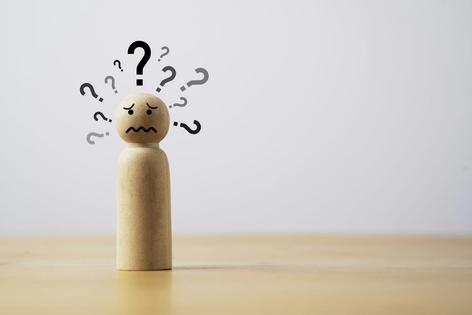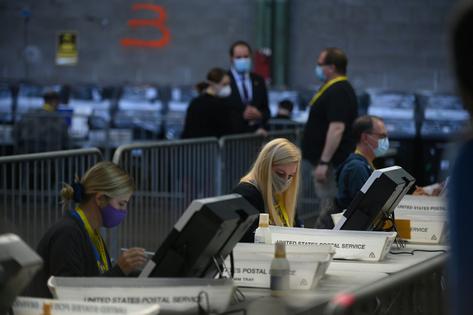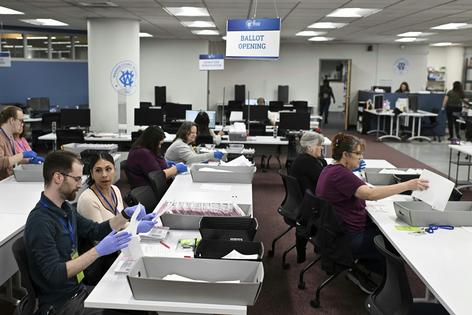Slow vote-counting, flip-flopping leads, careful certification and the weirdness of the Electoral College – people who research elections look at what to expect on election night
Published in Political News
As Election Day arrives, people’s feelings of eagerness and anxiety can intensify. It’s normal to want to know the results, but it’s also important to make sure that when the results are announced, they’re accurate.
The Conversation U.S. has covered many aspects of the election, including the mechanics of tallying and reporting the votes. Here are selections from some of those articles:
In 2020, Election Day was Nov. 3. While some results emerged that evening and over the subsequent days, it was not until four days later, Nov. 7, that The Associated Press called the race for Joe Biden over Donald Trump.
Waiting can be unsatisfying, wrote John M. Murphy, a communications scholar at the University of Illinois at Urbana-Champaign, but it’s key to getting accurate results.
Murphy warned: “People tend to see what they want to see. … Partisans want that beautiful picture of triumph, blue or red seas cascading across screens on election night.” But, he observed, that might be a mirage – and realizing it’s a mirage means one thing: “Wait. … Wait until we know it’s real.”
Read more:
Every state counts votes slightly differently. Some, like Colorado, allow election workers to begin counting absentee ballots in advance of Election Day, while in other states, like Illinois, the count can’t even start until the polling places close at the end of Election Day.
In addition, various communities report their results in different ways. Some may release preliminary results every so often while the counting continues, while others may wait until counting is fully complete before announcing any results.
That’s why vote counts change over time: Partial results are updated, and additional results are added to statewide tallies. In a 2020 article, Kristin Kanthak, a political science professor at the University of Pittsburgh, went through the whole process, including the release of partial results:
“Importantly … this doesn’t mean the system is ‘rigged.’ Actually, it means the system is transparent to a fault,” she wrote.
Read more:
Election officials take their jobs very seriously and work hard to count all the eligible votes accurately while under great pressure. They have specific rules and processes for how to handle ballots and vote-counting.
Derek Muller, an election-law scholar at the University of Notre Dame, explained those steps in detail, highlighting the focus on verifiable facts rather than people’s opinions about the process:
“Certifying an election is a rather mundane task. … It is little more than making sure all precincts have reported and the arithmetic is correct. But it is an important task, because it is the formal process that determines who won the most votes.”
Read more:
Of course, the candidate who gets the most votes doesn’t necessarily win the presidency. The official decision is made by the Electoral College.
Phillip VanFossen, a civics educator at Purdue University, explained that the Constitutional Convention in the summer of 1787 came up with three ideas, but couldn’t agree. Determined to find common ground, even if it was imperfect, the delegates told 11 men to come up with a solution, which was the Electoral College.
VanFossen explained that “with this compromise system, neither public ignorance nor outside influence would affect the choice of a nation’s leader. (The delegates) believed that the electors would ensure that only a qualified person became president. And they thought the Electoral College would serve as a check on a public who might be easily misled, especially by foreign governments.”
Read more:
Other nations were inspired by the U.S. Constitution, but not for long, as Westminster College political scientist Joshua Holzer explained:
“None have been satisfied with the results. And except for the U.S., all have found other ways to choose their leaders.”
Many people in the U.S. also aren’t satisfied with the Electoral College, and Holzer identifies one effort under way to replace it without amending the Constitution. But even that won’t ensure that the person who becomes president is supported by at least half of the people who cast ballots.
Read more:

































































Comments